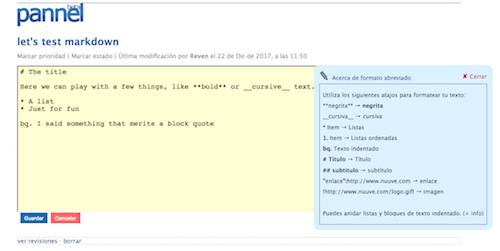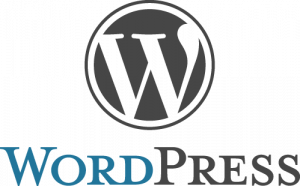
Pannel is a compact and minimal writeboard to track projects featuring a very lightweight implementation of markdown and in-place AJAX editing. Obviously, heavily inspired by 37signals‘ Writeboard.
I wouldn’t consider pannel a finished and polished web app. For starters it’s development has spanned 7 years… Yeah, a lot of things have happened in between. 🙂 But I wanted to finish the basics and get it working, to finally push it out the door and move onto something else. It’s development has been more of an exercise and than an objective based project.
The main idea was to use in place editing and to be somewhat RESTful in the calls and the way the app flows. Because it was meant for collaboration, no ownership is enforced or tracked (thus, no privacy either), but I wanted to track versions. There are a lot of ajax calls everywhere, which were mostly done with jQuery; it was fun porting and rewriting the modules I made 7 years ago in scriptaculous and prototype. And revisiting my php code from long ago was tough, but it was a great refresher.
My mini-markdown implementation seems a bit too minimal now, but back then it was actually pretty nifty to have it run in 70 lines of code instead of using some of the behemoth classes or packages available at the time.
I haven’t bothered updating the style or layout; though CSS has come a very long way in these 7 years, it was a little bit beyond my scope for this project.
If you want to have a look at it, pannel’s repo is on github. Play with it if you want and have fun.

 WordPress has had it’s share of security holes, and to be fair the dev community has worked hard to plug them pretty quick, but until auto-updates where introduced there was still a significant lapse before those updates reached the installations. And sometimes that was too late.
WordPress has had it’s share of security holes, and to be fair the dev community has worked hard to plug them pretty quick, but until auto-updates where introduced there was still a significant lapse before those updates reached the installations. And sometimes that was too late.